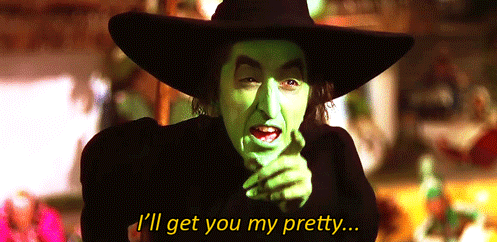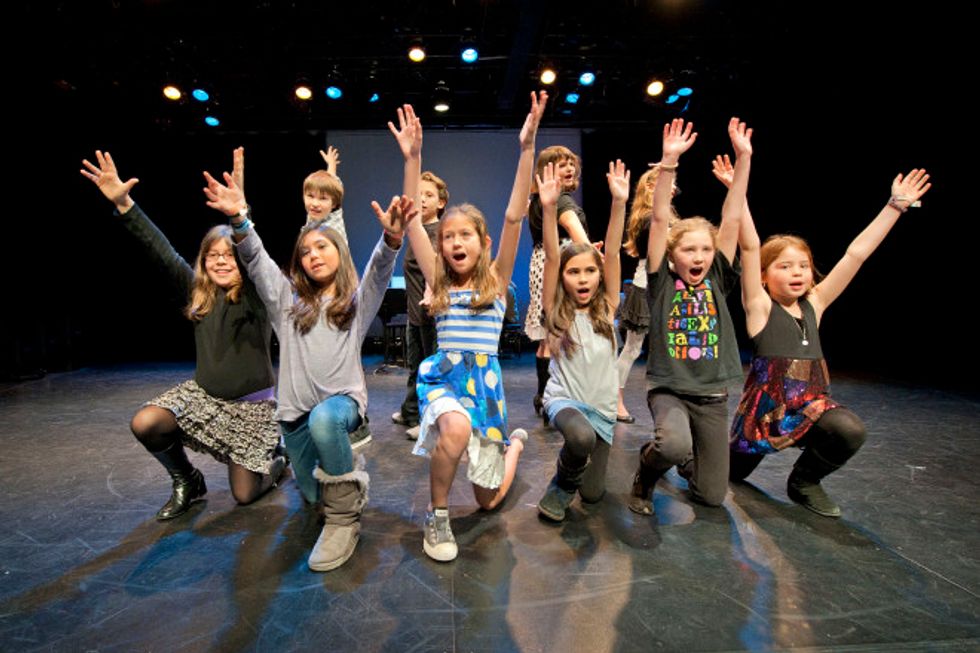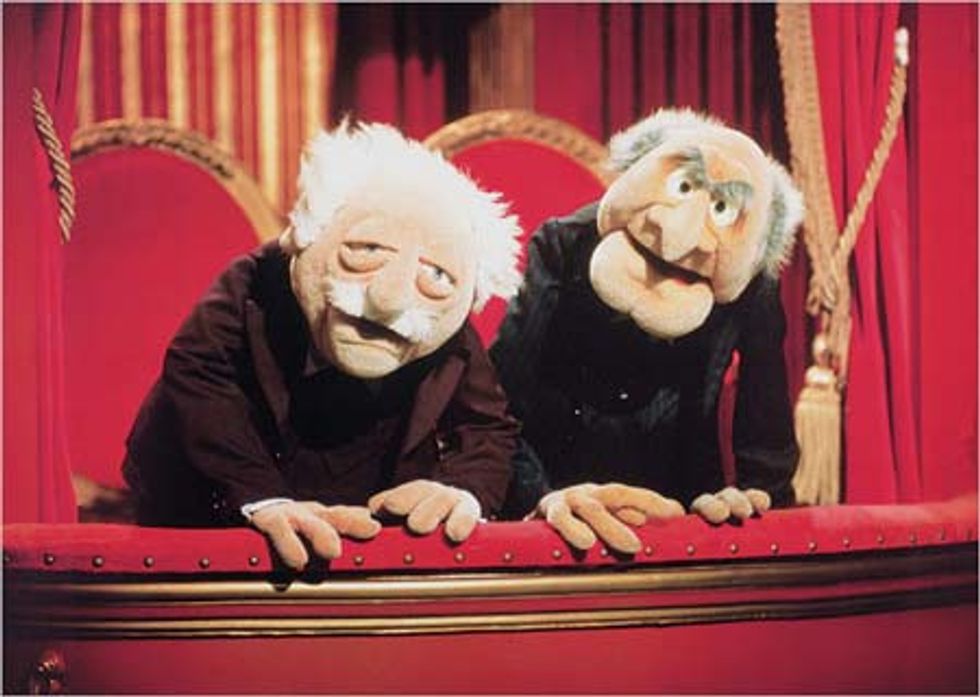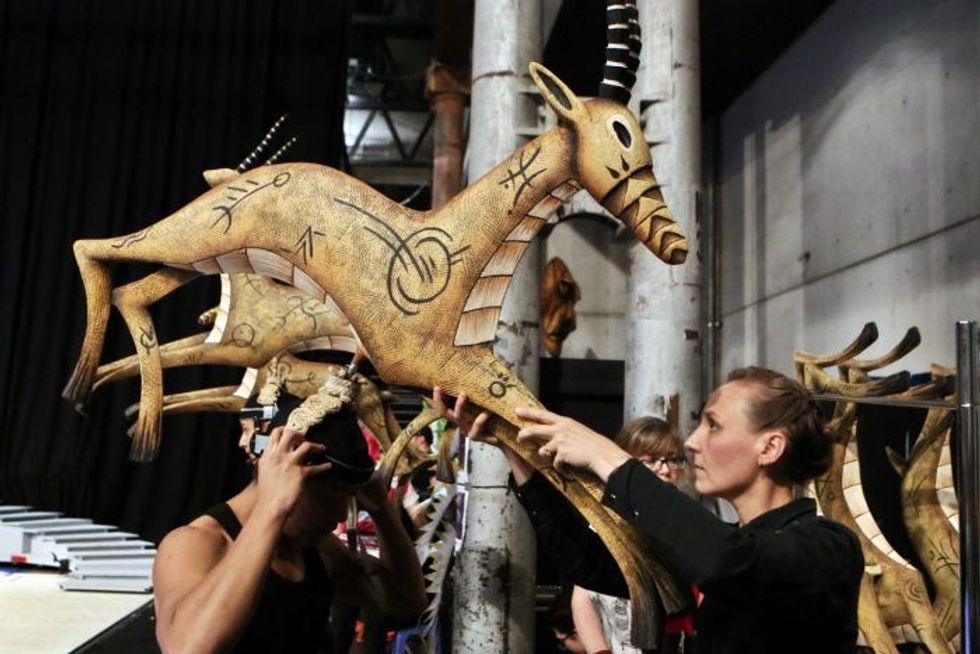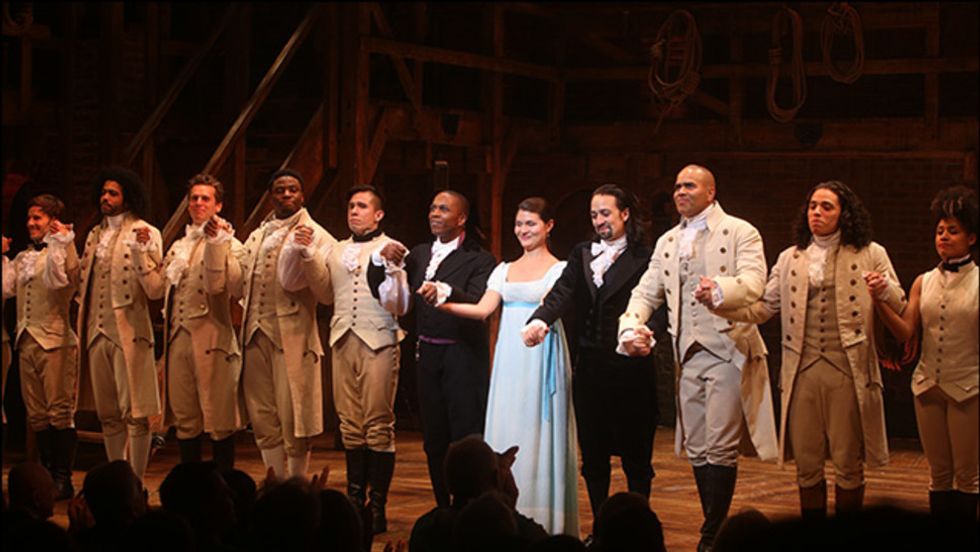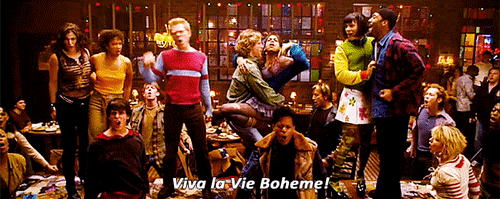When friends ask me where my passion for music and the Arts comes from, I usually respond with the perfectly-dramatic anecdote of my father and mother's experience seeing The Phantom of the Opera in Toronto. My mother was pregnant for me at the time, so of course the love for theatre was instilled in me whilst I listened in the womb. But since the pre-natal effects of music is still a developing study, I should defer to a story that took place once I was actually kicking and screaming.
My first exposure to the world of theatre, specifically of the musical variety, was a production of The Wizard of Oz produced by a local theater company near my hometown. It was my sister's first time in a musical (she premiered as a munchkin), so my brother and I came along to see her perform. I was five or so, and with my mother as my witness, I laughed and cried in the same sitting. My mother jokingly wrote off my tears as my response to seeing the Wicked Witch (who I genuinely feared), but there was more to my reaction than scary makeup and a screeching laugh.
At that young age, for the first time, I was overwhelmed with Art: the visual work of the sets, costumes, and special effects glowed in my eyes; the pit orchestra erupted in my ears with momentous clashes and sweet melodies; the actors brought these fantastic creatures and scenes to life just out of my reach. I took the whole experience in, but it was almost too much for me to handle. I couldn't shut up about it on the ride home. As a result, that year, my parents recognized the burning passion for the Arts inside of me and allowed me to start on that path as well. I began piano lessons, sang in a kids church choir, and the following year, I started performing in musicals, premiering as Theo in a production of Pippin. I never looked back.
These days, it is especially important to share not only the beauty of the Arts, but also how they enhance culture and society as a whole. While theatre is different and unique for everyone who performs, participates, and observes it in its various forms, there is no denying the myriad benefits theatre offers to the world. If the opportunities to participate in theatre and the Arts weren't available to me at the early stages of my life, I wouldn't be the person I am today. So without further "adieu" (to you and you and you), read on for five of the many life benefits of theatre:
Theatre...
1. Encourages positive social tendencies, especially at a young age.
Unless you're part of a one-man show, working with other actors, musicians, stage crew, and production staff goes hand in hand with being a part of theatre. And since not many people have landed the lead role in every show, you will most likely have the chorus/ensemble experience and pretty much be forced to interact with people from all walks of life on a consistent basis. For kids, having this experience at a young age makes it less difficult to meet new people because they've already had to go through it with theatre. And, while there are always a few divas or quirky individuals, you will become close to your fellow theatre-people. You'll naturally hang out with them to rehearse lines, go over choreography, or chat backstage (to the chagrin of stage crew).
Theatre is about expression and creativity, and the good feelings that come with that experience usually translate into pleasant dispositions.
2. Instills a healthy work ethic.
Unlike popular media will have you believe, crowds of energetic, musically-inclined people cannot simply manifest perfect lyrics, harmony, and choreography at a given time. Memorization and practice are paramount to successful theatre. No one can learn their lines, dance steps, music or stage cues without hours upon hours of rehearsal, practice, and repetition. The uplifting and fun aspects of theatre often underplay this, but people gain positive, productive work habits from the work that goes into putting on a show.
3. Teaches perseverance through stress and how to handle criticism.
Like any form of Art, there will be challenges in the creative process. Worry, doubt, and anxiousness can manifest. And live theatre is rife with opportunities for mistakes and mishaps to occur, even in the professional realm. No one enjoys a bad rehearsal, forgotten line, costume malfunction, or set-piece snafu. And of course, criticism from directors, production staff, and audience members will always be present. But like the saying goes, "the show must go on." This anthem of the theatre applies to the outside world as well. We cannot shut down because events don't transpire in a manner that is to our liking. We must continue to exert ourselves to put forth the best effort possible for the betterment of ourselves and those around us.
4. Leads to successful careers outside of performance.
There is more to theatre than just acting. The various behind-the-scenes aspects of theatre, including lightning, scenery, and costumes to name a few, are aspects of theatre with which everyone should interact in some way. Not only does it increase a performer's knowledge and appreciation for theatre, but it can lead to the discovery of another passion that doesn't require an audition to get hired!
5. ...Leads to successful careers IN performance!
I know I said I would list the benefits of theatre that aren't related to performing, and even though this one is obvious, it's still important to mention. Working towards a career in performance is a viable, attainable goal for anyone who tries hard enough. If no one took the risk to put themselves out there at an audition, no one would be performing. There is risk associated with applying for any job, and theatre is no different. But if the passion exists, you shouldn't deny it for the sake of others. Work hard to chase your dreams no matter what! Who says it can't be you?
So blast those showtunes with pride! Theatre is a vibrant and enriching part of our culture that continues to inspire people outside of the performance space. The experiences it shares create more well-rounded, creative, and fulfilled people. As Jonathan Larson so aptly wrote in Rent...


